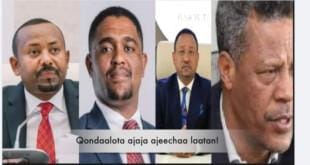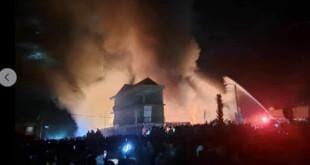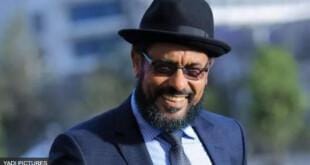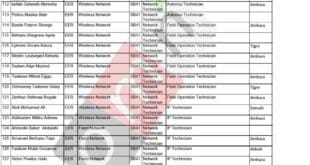The continued violation of human rights in Oromia and the Government denials The Ethiopian government’s human rights record remains poor, marked by an ever-hardening intolerance towards meaningful political dissent. Accordingly Prime Minister Hailemarim desalegn who took office after the sudden death of the late dictator Meles Zenawi has pledged to maintain the controversial policies of his predecessor. He vowed to continue with the legacy of the dead dictator without blending. In his first interview with an international media since taking office, he spoke with Peter Heinlein in New York.
In his interview he defended the imprisonment of several opposition politicians and journalists under the newly enacted anti terrorism law. He accused them of leading a double life. In the case of the imprisoned opposition, labeling them as being members of both “legal opposition” and “terrorist organization”. Based on yearly human rights records of Ethiopia published annually by US state department, human rights watch and amnesty international over the years that the TPLF led regime was on power in Ethiopia, one can understand the accusations as the continued denial by the government about the actual facts on the ground. In the case of members of the Oromo opposition who are currently in prison, the 2012 human rights situation in Ethiopia published by human rights watch, explains that “In March 2011, authorities arrested more than 200 members and supporters of registered Oromo opposition parties—the Oromo Federal Democratic Movement (OFDM) and the Oromo People’s Congress (OPC)—during mass roundups.
Those arbitrarily arrested and detained included former members of parliament, long-serving party officials, and candidates in the 2010 regional and parliamentary elections. They were publicly accused of being involved with the banned OLF; at least 89 have been charged with a variety of offenses, some relating to terrorism. On August 27 Bekele Gerba, deputy chairman of OFDM; Olbana Lelisa, a spokesman for OPC; and seven other opposition party members were arrested on charges of involvement with the OLF. They were held in pre- trial detention at the Federal Police Crime Investigation Department, also known as Maekelawi, where torture is reportedly common. At least 20 other ethnic Oromo were arrested in this same sweep.” As it can be seen here clearly these people who were arrested as being involved with OLF were either members or just supporters of opposition parties legally registered by the Ethiopian government. They were targeted for speaking against the injustice that is rampant under the TPLF led regime.
The government is using OLF as a pretext to suppress the resentment within the Oromo people. The new prime minister of Ethiopia has continued with the denial adopted by his predecessor. It is impossible for an Oromo national to speak against the government. The number of imprisoned Oromo nationals is so high that Mr. Birhanu Nega the chairman of Ginbot 7 Opposition party said that the lingua franca of Kality prison where he was imprisoned after 2005 national election is Afan Oromo even though the national language of Ethiopia is Amharic. What we are seeing today is even if there is a new person at the national Palace in Ethiopia we continue to see the old legacy without blending and the suffering and imprisonment of Oromo nationals on false accusation to continue regardless of government denials.




